In our guide to deep freezer repair at American Appliance Repair, we recognize the vital role your freezer plays in your daily life. It’s more than just an appliance; it’s an essential component of your home, safeguarding the freshness and safety of your food. We are committed to providing you with comprehensive guidance on freezer repair, aimed at ensuring your appliance operates smoothly and efficiently. Trust in our expertise to help you maintain the reliability and performance of your freezer, an integral part of your household’s functionality.
Table of Contents
ToggleUnderstanding Your Freezer: Basics and Beyond
Every freezer, whether it’s an upright freezer or a chest model, has fundamental components that are crucial for its operation. The heart of your freezer is the freezer compressor, working tirelessly to keep your food cold. But like any appliance, your freezer may face issues like freezer burn or a blocked system, impacting its efficiency. Knowing the basics of how your freezer operates is the first step in troubleshooting and maintaining it.
The Role of the Freezer Compressor
The freezer compressor is a vital component, responsible for the cooling process. It works by compressing refrigerant and circulating it through the freezer. If your freezer isn’t cooling properly, the compressor might be where your repair journey begins.
Dealing with Freezer Burn and Blocked Systems
Freezer burn occurs when food is not properly sealed, leading to dehydration and oxidation. To avoid this, ensure your food is stored correctly. On the other hand, a blocked freezer can result from accumulated ice or improperly stored food, obstructing airflow. Regular cleaning and maintenance can prevent these issues.
Maintenance: The Key to Longevity
Properly maintaining your freezer is crucial. Regular cleaning, checking for blocked vents, and ensuring the door seals tightly can significantly extend the life of your freezer. Maintenance not only keeps your freezer running but also saves on energy costs and reduces the risk of costly repairs.
Regular Cleaning and Inspection
Regular cleaning involves defrosting (if necessary), wiping down the interior, and checking door seals. Inspect your freezer for any signs of wear or damage, and keep an eye on the temperature to ensure it’s operating in the correct range.
Preventative Measures
Preventative maintenance is about being proactive. This includes checking for any strange noises, ensuring the freezer is level, and keeping it adequately filled. A well-stocked freezer maintains temperature better and runs more efficiently.
When to Call the Freezer Repair Experts
Sometimes, despite your best efforts, your freezer might need professional attention. This is where freezer repair experts come in. Recognizing when to call in a professional is vital.
Identifying the Need for Professional Help
If you encounter issues like a non-functioning compressor, excessive frost build-up, or a freezer that’s not maintaining its temperature, it’s time to call the experts. These problems often require technical knowledge and specialized tools for a proper fix.
The Benefits of Professional Repair
Professional freezer repair experts bring a wealth of experience and knowledge. They can quickly diagnose issues, recommend the best course of action, and carry out repairs efficiently. This not only saves you time but also ensures your freezer is repaired correctly, extending its life.
Troubleshooting Common Freezer Issues
Troubleshooting is a vital skill in freezer maintenance. By identifying common issues, you can determine whether you can fix them yourself or if professional help is needed. Let’s explore some frequent problems encountered with freezers and how to address them.
Understanding Your Freezer’s Functionality
To properly maintain your freezer, it’s essential to understand how it works. Regular checks on the thermostat, door seals, and internal components can prevent many common issues. Always refer to your freezer’s manual for specific maintenance guidelines.
Temperature Fluctuations
If your fridge or freezer is experiencing temperature inconsistencies, first check the thermostat settings. Ensure that it’s set to the recommended temperature. Additionally, a full freezer maintains its temperature better than an empty one, so consider this when stocking your appliance.
Frost Build-up
Excessive frost can indicate a problem with the defrost system or door seals. If the seals are worn out, they allow warm air to enter, causing frost. Regularly defrosting your freezer and checking the door seals can prevent this issue.
The Role of a Home Warranty
A home warranty can be a lifesaver when it comes to appliance repairs. It often covers the cost of repairing or replacing major components of your appliances, including freezers. If you have a home warranty, check its terms to see if your freezer issues are covered.
When to Use Your Warranty
In most areas, a home warranty can significantly reduce the costs of repairs. Before you call a technician, check if your freezer’s issue is covered under your warranty. This can save you both time and money.
Data-Driven Maintenance
In today’s digital age, many modern freezers come equipped with smart technology. This technology provides valuable data on your freezer’s performance, which can be taken into account during maintenance. By analyzing this data, you can often prevent issues before they become serious problems.
Smart Appliances and Predictive Maintenance
Smart refrigerators and freezers can alert you to potential issues, such as temperature fluctuations or a malfunctioning compressor. This predictive maintenance is invaluable in preserving the quality and longevity of your appliance.
Replacing vs. Repairing
One of the most significant decisions in appliance care is whether to repair or replace a malfunctioning freezer.
Assessing the Cost-Effectiveness
Consider the age of your freezer, the cost of repairs, and the efficiency of your current model. In many cases, repairing an older freezer can be more costly in the long run due to higher energy consumption and the likelihood of recurring issues.
Quality and Longevity
When deciding to replace your freezer, consider the quality and features of the new model. Newer freezers often have better energy efficiency and advanced features that can save money and provide greater convenience.
Environmental Considerations
Replacing an old appliance also has environmental implications. Newer models are generally more energy-efficient and environmentally friendly, reducing your carbon footprint.
Empowering Your Freezer Maintenance
Understanding how to troubleshoot and when to opt for professional repair or replacement is key to maintaining your freezer’s efficiency. A home warranty can be a valuable asset in managing repair costs, and utilizing data from smart appliances can enhance your maintenance strategy. Remember, the goal is to ensure the longevity and optimal performance of your freezer, contributing to a more efficient and hassle-free kitchen experience.
Frequently Asked Questions
1. Is it worth fixing a deep freezer?
Fixing a deep freezer can be worth it if the cost of repair is significantly lower than replacement, and if the freezer is not too old or hasn’t faced multiple prior issues. Assessing the extent of the damage and considering the age and efficiency of the unit are crucial in making this decision.
2. Is it cheaper to repair or replace a freezer?
It is often cheaper to repair a freezer if the problem is minor, such as replacing a thermostat or fixing a seal, but for major issues or older models, replacing might be more cost-effective in the long run due to improved energy efficiency and performance.
3. What causes a deep freezer to stop working?
Common causes for a deep freezer to stop working include issues with the compressor, thermostat failures, refrigerant leaks, or electrical problems. Regular maintenance and early detection of minor issues can prevent these more significant problems.
4. How do you fix a chest freezer that is not cooling?
To fix a chest freezer that is not cooling, first check and adjust the thermostat settings, inspect the seals for any leaks, and ensure the condenser coils are clean and unobstructed. If these steps don’t resolve the issue, it might be a problem with the compressor or refrigerant system, requiring professional repair.
In our guide to deep freezer repair at American Appliance Repair, we recognize the vital role your freezer plays in your daily life. It’s more than just an appliance; it’s an essential component of your home, safeguarding the freshness and safety of your food. We are committed to providing you with comprehensive guidance on freezer repair, aimed at ensuring your appliance operates smoothly and efficiently. Trust in our expertise to help you maintain the reliability and performance of your freezer, an integral part of your household’s functionality.

Understanding Your Freezer: Basics and Beyond
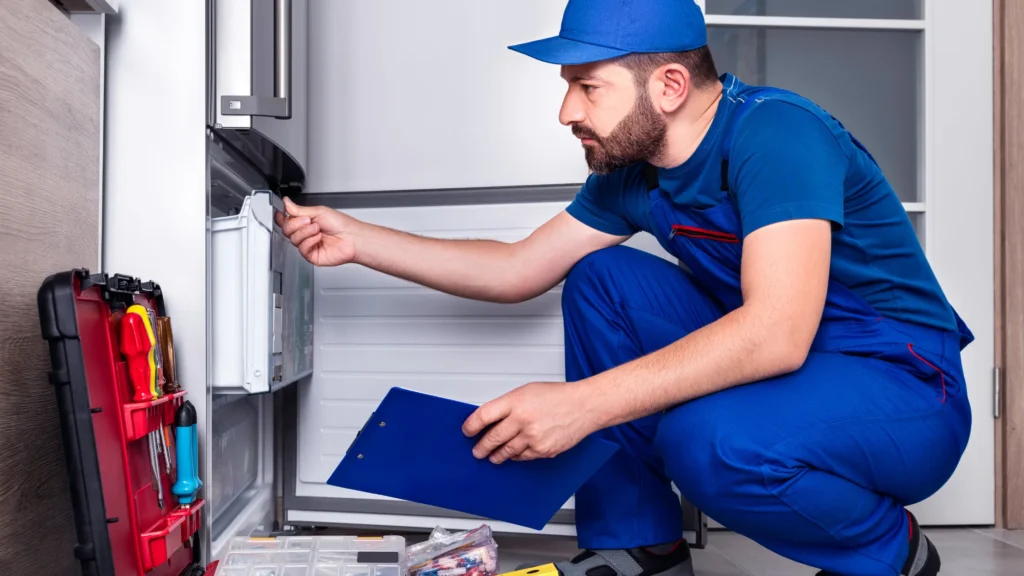
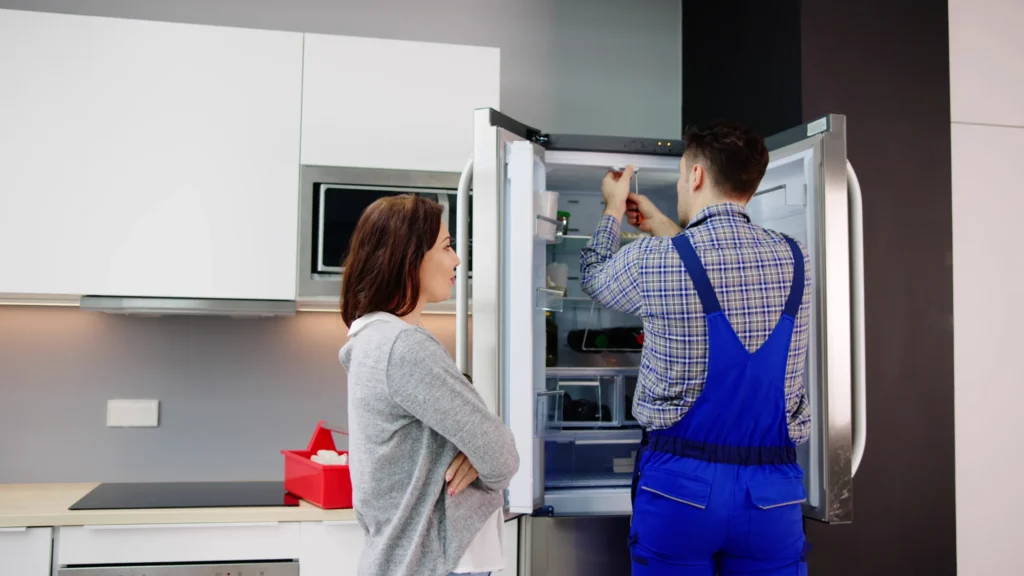
Every freezer, whether it’s an upright freezer or a chest model, has fundamental components that are crucial for its operation. The heart of your freezer is the freezer compressor, working tirelessly to keep your food cold. But like any appliance, your freezer may face issues like freezer burn or a blocked system, impacting its efficiency. Knowing the basics of how your freezer operates is the first step in troubleshooting and maintaining it.
The Role of the Freezer Compressor
The freezer compressor is a vital component, responsible for the cooling process. It works by compressing refrigerant and circulating it through the freezer. If your freezer isn’t cooling properly, the compressor might be where your repair journey begins.
Dealing with Freezer Burn and Blocked Systems
Freezer burn occurs when food is not properly sealed, leading to dehydration and oxidation. To avoid this, ensure your food is stored correctly. On the other hand, a blocked freezer can result from accumulated ice or improperly stored food, obstructing airflow. Regular cleaning and maintenance can prevent these issues.
Maintenance: The Key to Longevity
Properly maintaining your freezer is crucial. Regular cleaning, checking for blocked vents, and ensuring the door seals tightly can significantly extend the life of your freezer. Maintenance not only keeps your freezer running but also saves on energy costs and reduces the risk of costly repairs.
Regular Cleaning and Inspection
Regular cleaning involves defrosting (if necessary), wiping down the interior, and checking door seals. Inspect your freezer for any signs of wear or damage, and keep an eye on the temperature to ensure it’s operating in the correct range.
Preventative Measures
Preventative maintenance is about being proactive. This includes checking for any strange noises, ensuring the freezer is level, and keeping it adequately filled. A well-stocked freezer maintains temperature better and runs more efficiently.

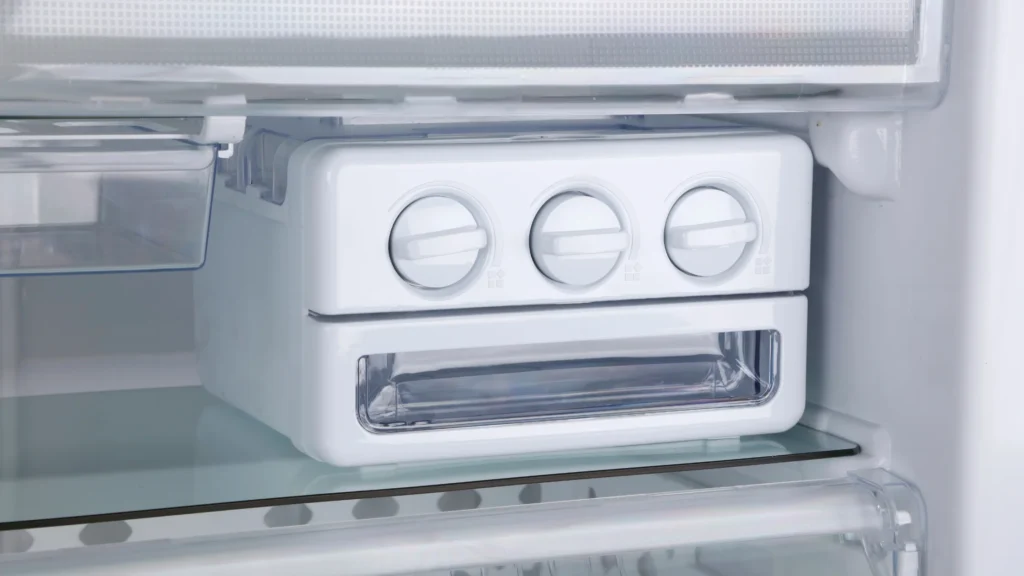
When to Call the Freezer Repair Experts
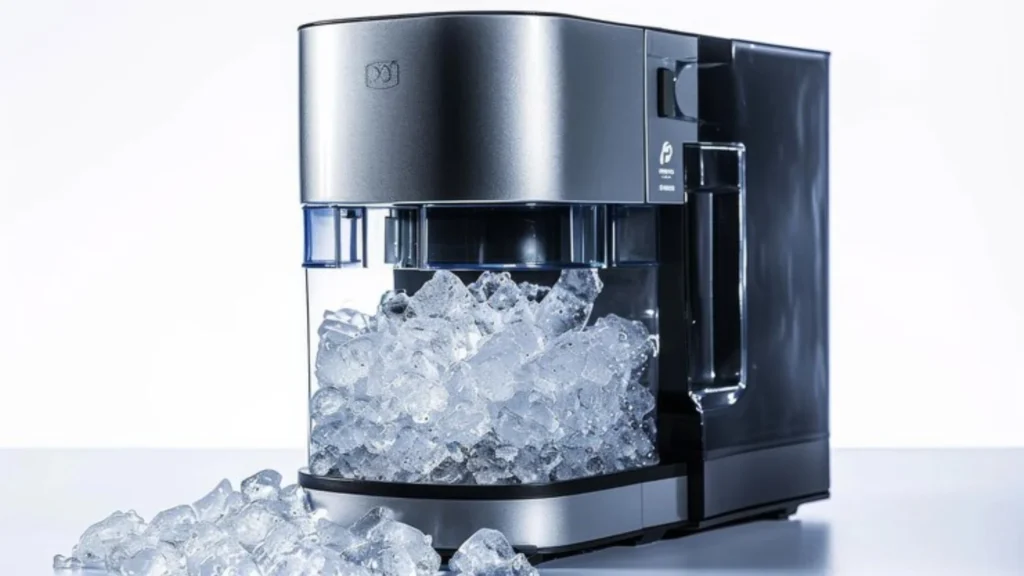

Sometimes, despite your best efforts, your freezer might need professional attention. This is where freezer repair experts come in. Recognizing when to call in a professional is vital.
Identifying the Need for Professional Help
If you encounter issues like a non-functioning compressor, excessive frost build-up, or a freezer that’s not maintaining its temperature, it’s time to call the experts. These problems often require technical knowledge and specialized tools for a proper fix.
The Benefits of Professional Repair
Professional freezer repair experts bring a wealth of experience and knowledge. They can quickly diagnose issues, recommend the best course of action, and carry out repairs efficiently. This not only saves you time but also ensures your freezer is repaired correctly, extending its life.
Troubleshooting Common Freezer Issues
Troubleshooting is a vital skill in freezer maintenance. By identifying common issues, you can determine whether you can fix them yourself or if professional help is needed. Let’s explore some frequent problems encountered with freezers and how to address them.
Understanding Your Freezer’s Functionality
To properly maintain your freezer, it’s essential to understand how it works. Regular checks on the thermostat, door seals, and internal components can prevent many common issues. Always refer to your freezer’s manual for specific maintenance guidelines.
Temperature Fluctuations
If your fridge or freezer is experiencing temperature inconsistencies, first check the thermostat settings. Ensure that it’s set to the recommended temperature. Additionally, a full freezer maintains its temperature better than an empty one, so consider this when stocking your appliance.
Frost Build-up
Excessive frost can indicate a problem with the defrost system or door seals. If the seals are worn out, they allow warm air to enter, causing frost. Regularly defrosting your freezer and checking the door seals can prevent this issue.
The Role of a Home Warranty
A home warranty can be a lifesaver when it comes to appliance repairs. It often covers the cost of repairing or replacing major components of your appliances, including freezers. If you have a home warranty, check its terms to see if your freezer issues are covered.
When to Use Your Warranty
In most areas, a home warranty can significantly reduce the costs of repairs. Before you call a technician, check if your freezer’s issue is covered under your warranty. This can save you both time and money.
Data-Driven Maintenance
In today’s digital age, many modern freezers come equipped with smart technology. This technology provides valuable data on your freezer’s performance, which can be taken into account during maintenance. By analyzing this data, you can often prevent issues before they become serious problems.
Smart Appliances and Predictive Maintenance
Smart refrigerators and freezers can alert you to potential issues, such as temperature fluctuations or a malfunctioning compressor. This predictive maintenance is invaluable in preserving the quality and longevity of your appliance.
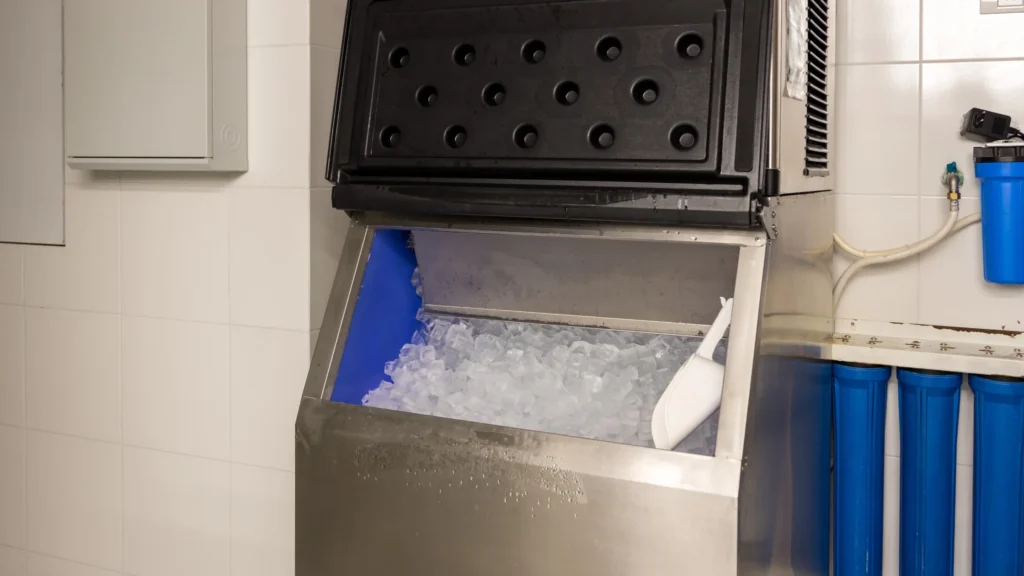
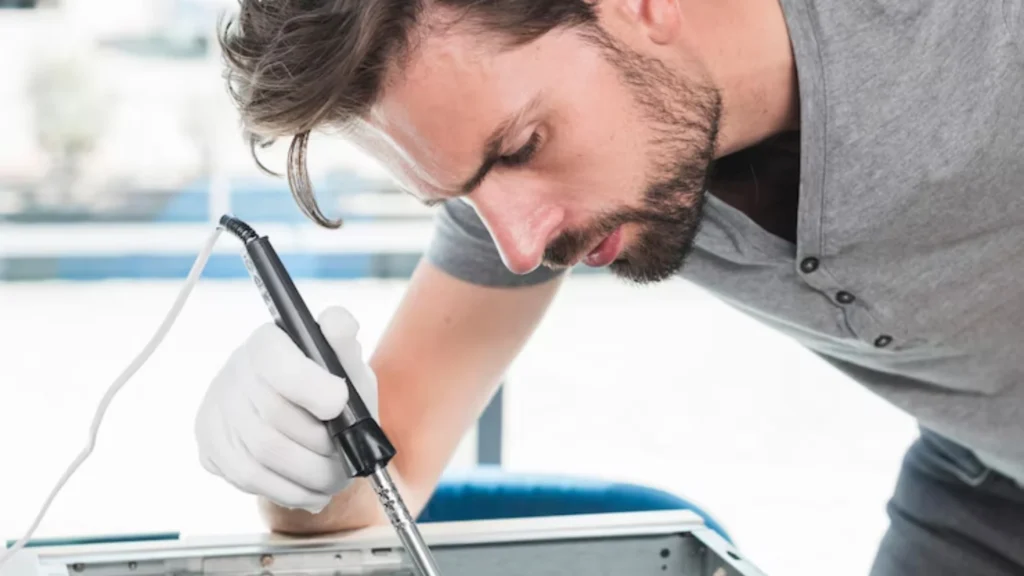
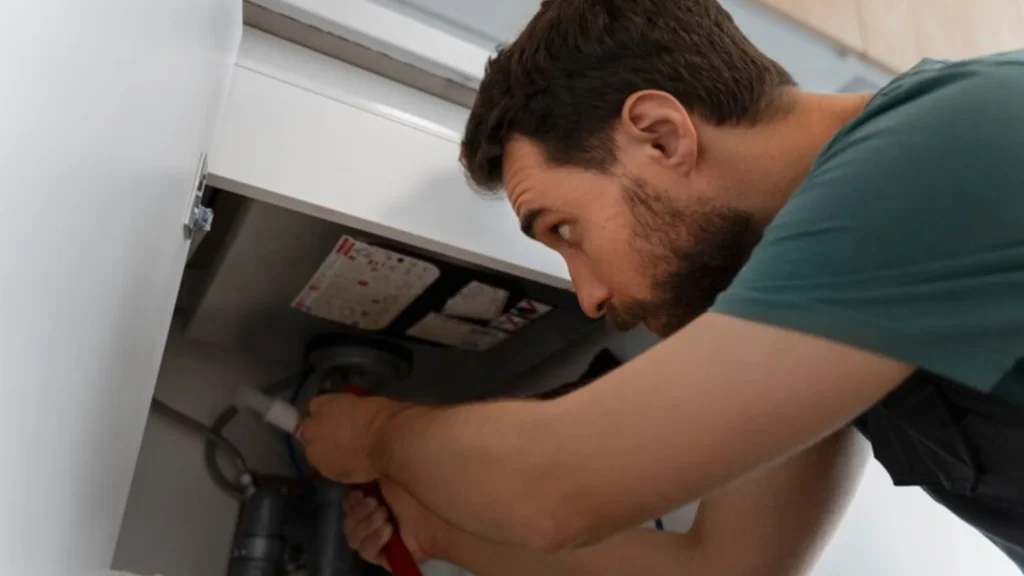
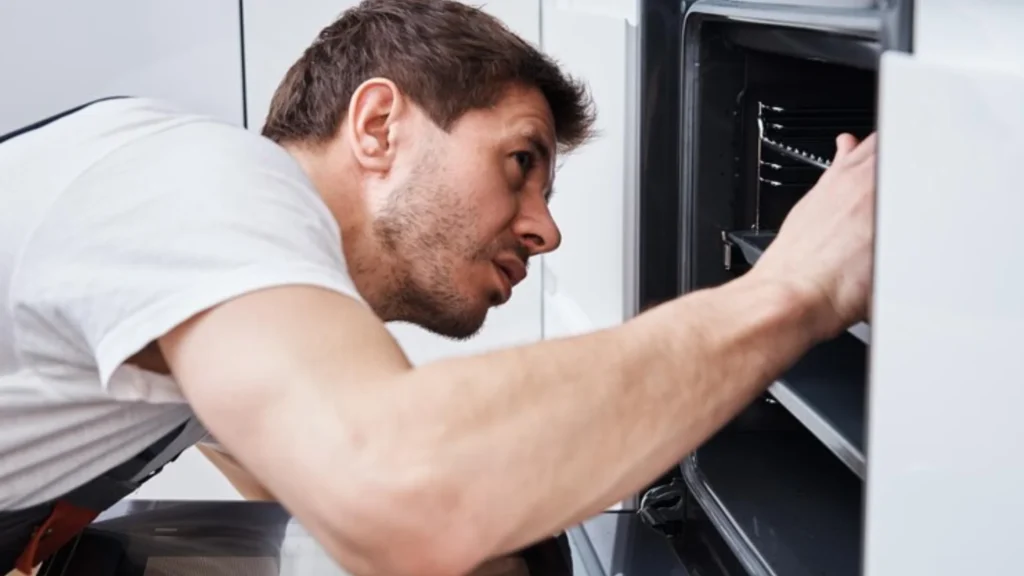

Replacing vs. Repairing
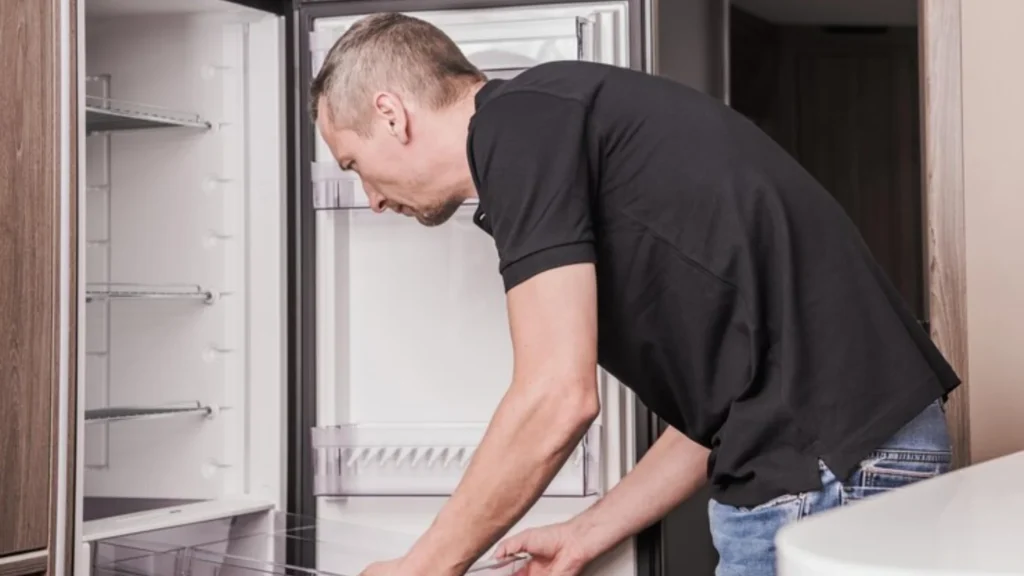
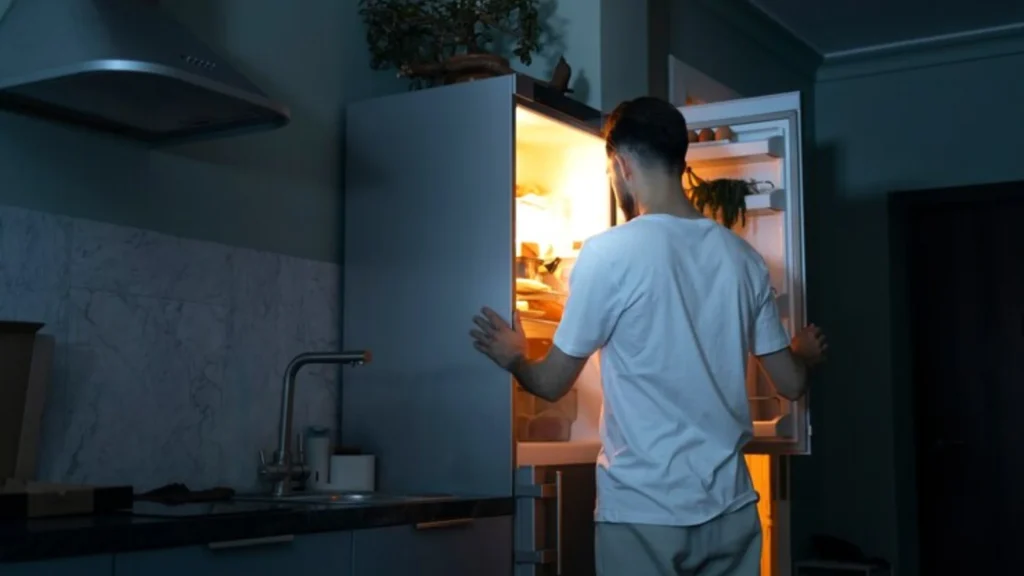
Assessing the Cost-Effectiveness
Consider the age of your freezer, the cost of repairs, and the efficiency of your current model. In many cases, repairing an older freezer can be more costly in the long run due to higher energy consumption and the likelihood of recurring issues.
Quality and Longevity
When deciding to replace your freezer, consider the quality and features of the new model. Newer freezers often have better energy efficiency and advanced features that can save money and provide greater convenience.
Environmental Considerations
Replacing an old appliance also has environmental implications. Newer models are generally more energy-efficient and environmentally friendly, reducing your carbon footprint.
Empowering Your Freezer Maintenance
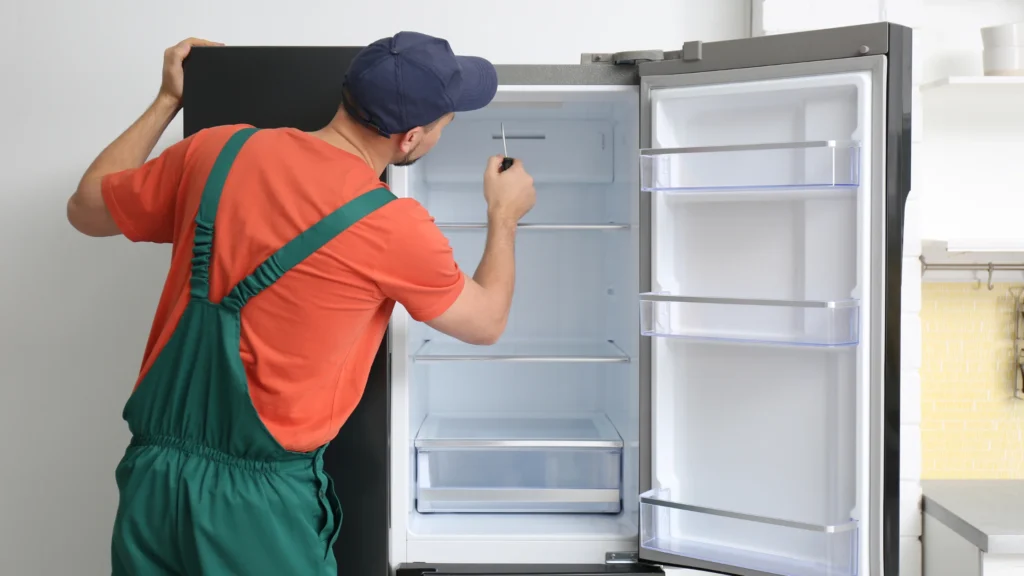
Understanding how to troubleshoot and when to opt for professional repair or replacement is key to maintaining your freezer’s efficiency. A home warranty can be a valuable asset in managing repair costs, and utilizing data from smart appliances can enhance your maintenance strategy. Remember, the goal is to ensure the longevity and optimal performance of your freezer, contributing to a more efficient and hassle-free kitchen experience.
Frequently Asked Questions
Fixing a deep freezer can be worth it if the cost of repair is significantly lower than replacement, and if the freezer is not too old or hasn’t faced multiple prior issues. Assessing the extent of the damage and considering the age and efficiency of the unit are crucial in making this decision.
It is often cheaper to repair a freezer if the problem is minor, such as replacing a thermostat or fixing a seal, but for major issues or older models, replacing might be more cost-effective in the long run due to improved energy efficiency and performance.
Common causes for a deep freezer to stop working include issues with the compressor, thermostat failures, refrigerant leaks, or electrical problems. Regular maintenance and early detection of minor issues can prevent these more significant problems.
To fix a chest freezer that is not cooling, first check and adjust the thermostat settings, inspect the seals for any leaks, and ensure the condenser coils are clean and unobstructed. If these steps don’t resolve the issue, it might be a problem with the compressor or refrigerant system, requiring professional repair.